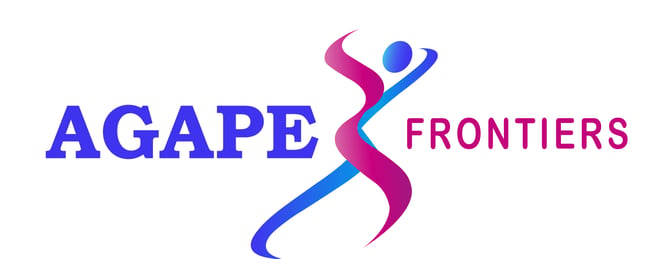About Us
Agape Frontiers partners locally, nationally and internationally to work for social change at the grassroots level.
Enhance access to justice, equity and inclusion among marginalized populations
Promote community health and nutrition, specifically for children, adolescents and young people
Provide equitable secondary education and vocational training
Support livelihood and economic opportunity for girls and women
A close companion to Agape Frontiers is the Agape Knowledge Open School. Here, we provide free secondary education for girls from child, early and forced marriage, child pregnancy, and gender-based violence. Approximately 60 students live at our school to complete their studies.
Through cross-cutting initiatives that promote responsible change and development, Agape Frontiers influences strong public policy and contributes to good governance.
Our dedicated team envisions a just society that benefits us all.

Social Justice, Equity and Inclusion
Agape Frontiers provides timely access to quality protection services and legal counsel for marginalized populations, including children, adolescents and young people, indigenous peoples, and the poor, particularly girls and women.
Agape lawyers offer legal aid to ensure free access to professional advice and representation. As well, Agape conducts public workshops and training sessions on topics such as women's and children’s rights and legal rights.
Outreach activities extend to hard-to-reach village areas in order to facilitate conflict resolution and increase community awareness.
Agape Frontiers works for people to uphold their rights.

Community Health and Nutrition
'Train the trainer' models in schools and in the community offer children, adolescents and young people information about sexual and reproductive health and rights as well as good nutrition. Agape Frontiers uses an evidence-based approach to meet real needs and enable healthy choices.
Peer educators and adult facilitators act as social, cultural, behavioural, and policy change agents through comprehensive sexuality education. They share remarkable stories of success.
Agape also offers psychosocial support to girls and women who have been traumatized by gender-based violence. Once they are treated with dignity and respect, they can inspire well-being in others.

Equitable Education and training
Livelihood and Economic Opportunity
Only 30% of Tanzanians enroll in secondary school, and less than 3% complete their studies. Particularly in Shinyanga and Singida Regions, socio-cultural beliefs and practices, gender-specific behaviors, poverty, and ignorance of sexual and reproductive health and rights lead to child, early and forced marriage (affecting 59% of local girls under 18 years old), violence against women and children, child pregnancy, and HIV/AIDS risks. Expulsion from public education follows.
Agape Frontiers is especially committed to girls' education. Our Agape Knowledge Open School welcomes referrals from all around Tanzania and provides courageous girls with a safe place to live and learn.
Agape also integrates girls and women into vocational training programs. Each additional year of education decreases risks associated with child, early and forced marriage and child pregnancy by 6%.
Agape Frontiers advances women's empowerment in independent micro, small and medium businesses. We organize workshops about everything from entrepreneurship to agribusiness, accounting to profit sharing, and marketing to management. We ensure that women's workplaces are secure and productive.
Agape also commits to opening land rights to fair ownership and control, extending necessary financial resources through Village Savings and Loans Associations and Village Community Banking, and amending discriminatory laws.
We know that women invest around 90% of their earnings back into their families and communities. Agape Frontiers proudly mentors such proactive social leadership.


Agape Frontiers advances important community issues regionally, in collaboration with the Sex Rights Africa Network, nationally through the Tanzania Ending Child Marriage Network, the Tanzania Education Network, the Tanzania Network of Legal Aid Providers, the Tanzania Human Rights Defenders Coalition, the Tanzania Child Rights Forum, Women in Law and Development in Africa - Tanzania, and the Tanzania Child Domestic Workers Coalition, and globally alongside Girls Not Brides.

